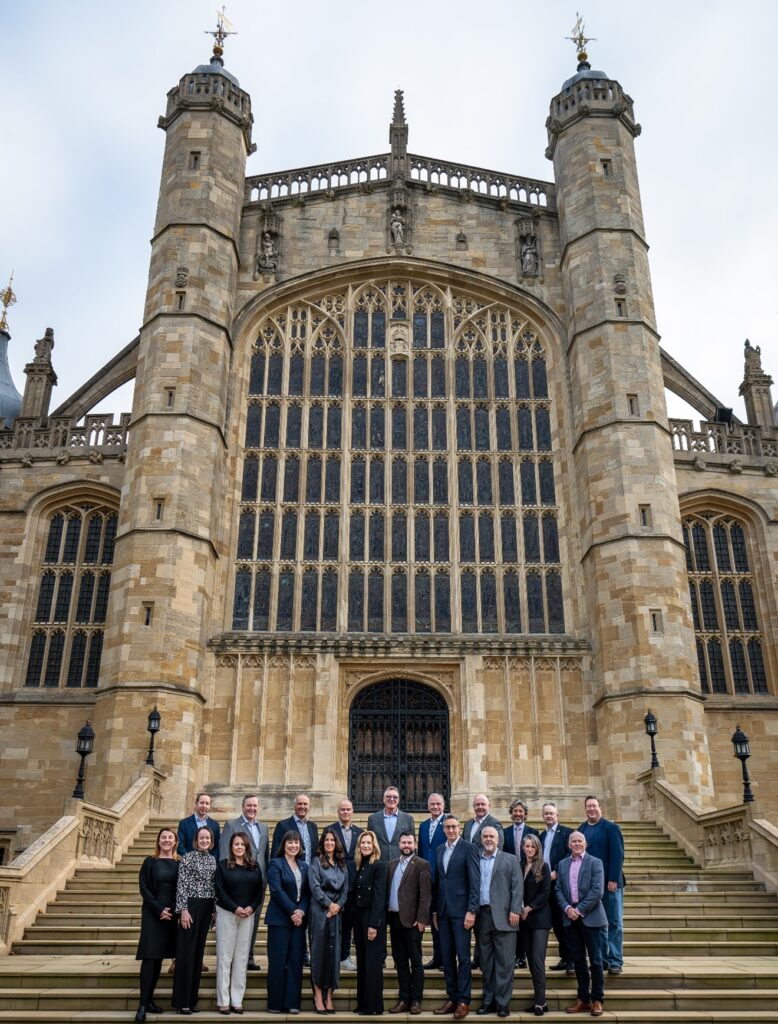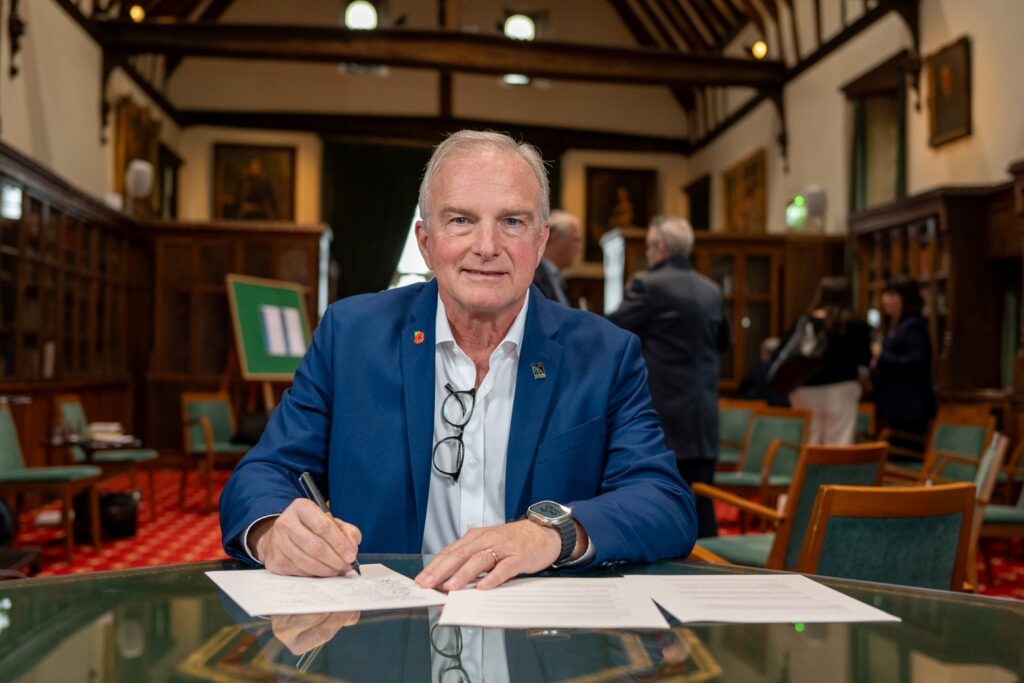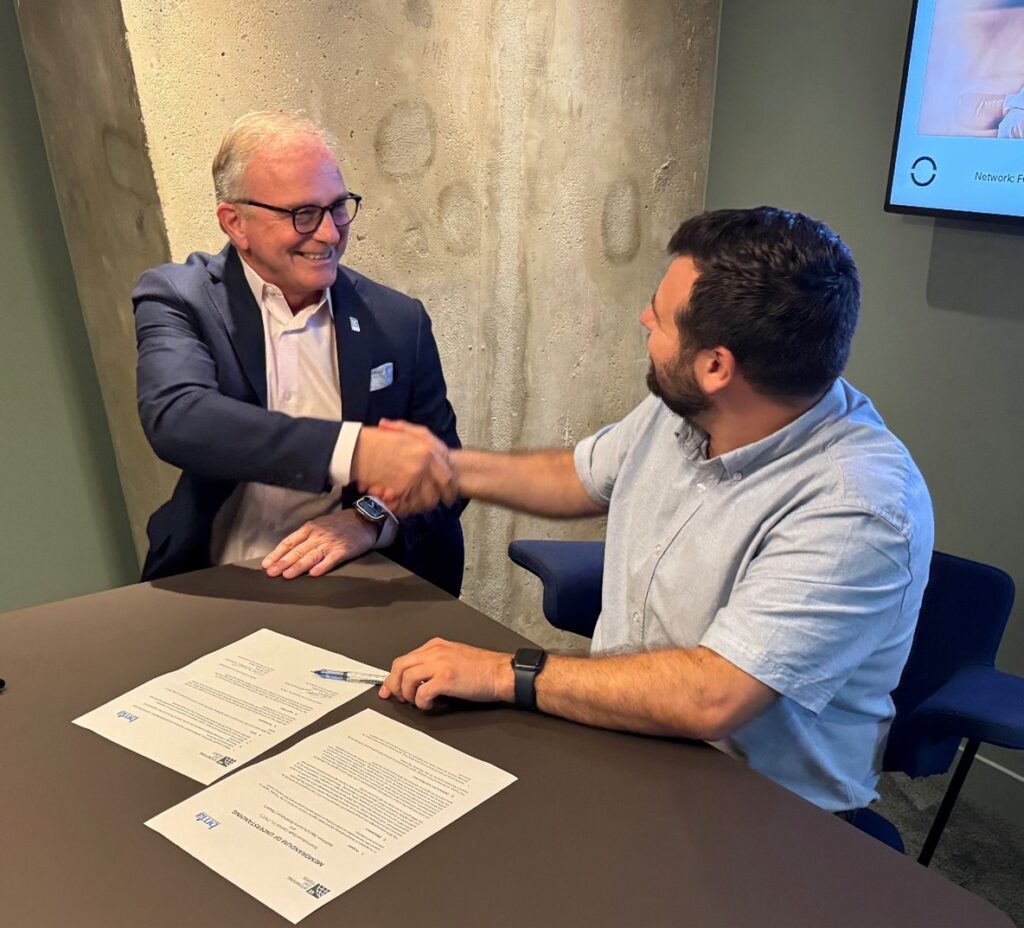
The Windsor Summit and Declaration: A Landmark Event for the Plumbing Industry
The summit aimed to address two critical global challenges: water scarcity and antimicrobial resistance.
In a historic gathering at Windsor Castle in the United Kingdom on Nov. 1, 2024, the Bathroom Manufacturers Association (BMA) hosted the Windsor Summit, bringing together top plumbing and bathroom industry leaders from around the world. The summit aimed to address two critical global challenges: water scarcity and antimicrobial resistance (AMR).
The event culminated in the signing of the Windsor Declaration, a landmark pledge to reduce water waste and combat infection risks through innovative solutions and collaborative efforts.
The International Code Council is honored to be a signatory of the Windsor Declaration, joining forces with industry leaders across the manufacturing sector to tackle these pressing challenges. Many of the declaration’s focus areas align closely with initiatives where the Code Council has demonstrated leadership for many years.

Pictured: Windsor Summit participants.
“The Windsor Declaration represents a united front within our industry to tackle the critical issues of water scarcity and sanitation,” said Tom Reynolds, CEO of the BMA. “We believe that by pooling our resources, knowledge and influence, we can inspire real change and support the global transition to more sustainable water management practices. Our industry has the potential to be a driver of positive environmental impact, and we are committed to that cause.”
Addressing Water Scarcity Through Efficiency
Water scarcity is a pressing issue affecting many regions worldwide. The plumbing industry, which consumes a significant amount of water through toilets, showers and faucets, has a crucial role to play in conserving this precious resource.
The Windsor Declaration acknowledges the industry’s responsibility to develop more efficient bathroom products that use less water without compromising performance.
One of the key commitments outlined in the declaration is the implementation of water efficiency labeling for bathroom products. This labeling seeks to provide consumers in the United Kingdom and Europe with clear information about the water usage of different products, enabling them to make informed choices that contribute to water conservation.
The International Code Council also supports this mission. Tom Roberts, Global Director of PMG, was recently appointed to the Board of the Unified Water Label Association, which sits alongside WELS in Australia and WaterSence in the USA and Canada. Roberts and the Code Council will also contribute to progressing the objectives of the Windsor Declaration in collaboration with the BMA and other industry leaders.
This focus aligns with the Code Council’s World Water Awareness campaign which includes new research and information that will aid in the rapid implementation of codes and standards and helps guide decision-makers in managing finite resources on a global scale.
The BMA and its members have pledged to invest in research and development to create innovative solutions that reduce water consumption, even in situations with low water pressure.
“Global water scarcity is a critical issue that the Code Council has been actively seeking to address for many years through leadership and innovation. Initiatives such as the ‘World Water Awareness’ campaign, combined with practical and technical solutions, exemplify the Council’s commitment to this cause,” said Tom Roberts. “This focus has led to the development of the International Water Conservation Code Provisions® (IWCCP), which provides modern water conservation solutions and a valuable code to govern the impacts from buildings on the environment. We’re also developing a new standard for pipe sizing, ICC 815, in partnership with the University of Miami, which is expected to deliver substantial water savings through correct sizing of water services, whilst considering and resolving possible unintended consequences of such a significant change in building service design.”
Combating Antimicrobial Resistance
AMR is another significant global health threat, with bacteria becoming increasingly resistant to antibiotics. The plumbing and bathroom industry can play a vital role in reducing the spread of harmful bacteria by improving hygiene standards and developing products that minimize infection risks.
The Windsor Declaration includes commitments to enhance hand hygiene, reduce toilet plumes and biofilm growth, and develop touchless technologies that inhibit microbial growth.
This initiative aligns closely with the Code Council’s mission to reduce the risks from plumbing services in hospital and healthcare buildings through the development of a new standard ICC 1670 Standard for Plumbing Systems in Hospitals and Healthcare Buildings.
Global Sanitation
Additionally, signatories of the Windsor Declaration have committed to extending a combined effort to improve sanitation globally, particularly in low- to middle-income countries.
As with other aspects of the declaration, this focus area closely aligns with ongoing global solutions in development such as ICC 825, a new standard for on-site sewage disposal systems. This new standard will provide international solutions for both developed and developing countries and focus on the impacts of climate change, and how better to design and install such systems to be more resilient to extreme weather events.
Industry Commitments and Collaboration
The Windsor Summit highlighted the importance of collaboration between industry leaders, governments and other stakeholders to address global challenges. By working together, the bathroom industry can contribute to the development of safer and more sustainable bathroom solutions that benefit both individuals and communities.
The Code Council was joined at the Summit by some of the world’s leading bathroom brands, including Kohler, Fortune Brand Innovations, Hansgrohe and many more. These industry leaders are committed to investing in research and development to create more efficient and hygienic bathroom products.
The Summit also emphasized the need for proactive collaboration with governments and NGOs to promote water conservation and hygiene practices. By working together, the industry can advocate for policies that support sustainable water use and improve public health outcomes.

Pictured: Dominic Sims signing the Windsor Declaration.
International Code Council and BMA Collaboration
In August 2024, the leadership from the Code Council and BMA met in London to discuss many of the issues facing the plumbing and bathroom industries and opportunities for collaboration to take a leadership role in working towards industry-led solutions.
Attending this important discussion were Stuart Tom, Past President of the Code Council Board of Directors, Dominic Sims, CEO of the Code Council and representatives from the Code Council’s PMG team. They met with Tom Reynolds, CEO, and Andy McLean, Technical Director of the Bathroom Manufacturers Association.
In recognition of these shared interests, the Code Council and BMA have established a Memorandum of Understanding (MoU) to formalize the many areas of mutual objectives and a commitment to ongoing organizational collaboration.
“The MoU between the BMA and the Code Council represents a strong spirit of collaboration that exists between our two organizations,” said Reynolds. “A strategic focus of the association, set by members, is to raise standards across the bathroom industry here in the UK. That is what the Code Council is also about, so our partnership is built on firm common ground.”

Pictured: Dominic Sims, CEO of the International Code Council and Tom Reynolds, CEO of the Bathroom Manufacturers Association signing a MoU in August 2024.
Impact and Future Outlook
The Windsor Declaration represents a significant step forward for the bathroom industry in addressing global challenges. By committing to innovative solutions and collaborative efforts, industry leaders are positioning themselves at the forefront of health and environmental protection efforts. The declaration’s focus on water efficiency and infection prevention has the potential to make a substantial impact on water conservation and public health worldwide.
As the plumbing industry continues to evolve, the commitments made at the Windsor Summit will serve as a guiding framework for future innovations and collaborations. By prioritizing sustainability and hygiene, the industry can contribute to a healthier and more sustainable future for all.
To stay up to date on current PMG news and research, subscribe to the Code Council’s PMG newsletter here.







